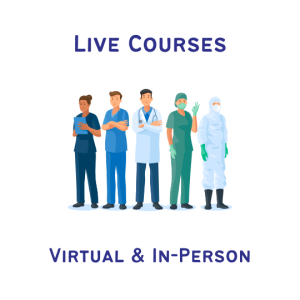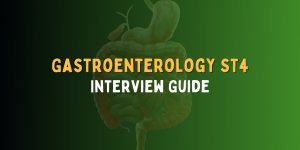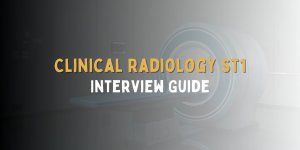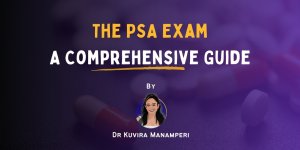
Published March 24, 2023 | Updated June 4, 2024
By Dr. Ifrah Akbar
Ifrah, meaning ‘joy’, finds happiness in everything she does! Whether it’s reading manga, watching anime/TV shows, or studying medicine – she holds her passions quite close to her heart. A happy-go-lucky individual who wants the best of everything!
Attention, doctors who want to pursue emergency medicine in the UK!
The world of medicine is constantly changing and evolving. Whether it is treatment plans, exams or vaccinations, keeping up with medicine is essential if you don’t want to be left behind.
Since you’re here reading up on the MRCEM, it means that you’ve decided to professionally pursue your career in emergency medicine – that’s great!
Emergency Medicine is an extensive field that requires not only vast trauma, generalist, and ED specialist knowledge but also quick decision-making skills. These skills and knowledge combined with experience can help save lots of lives.
Now that we’re done with the basics, let’s dig deeper into the MRCEM exams (specifically the MRCEM Primary).
What are the MRCEM Exams?
The Royal College of Emergency Medicine announced the most recent iteration of its membership exams with the three-part MRCEM examinations in the second half of 2021. It comprises of:
- MRCEM Primary – Mainly assesses your grip on the basic sciences subjects
- MRCEM Intermediate SBA – Tests your clinical knowledge
- MRCEM OSCE – Evaluates your communication skills, body language in front of a patient and assesses ethical behaviour plus professionalism.
The MRCEM exams are mandatory for all UK graduates and IMGs (International Medical Graduates) who want to pursue emergency medicine professionally.
Those who’ve completed their medical qualification in the UK can take these exams during their foundation programme or core training (ACCS – EM). However, they must pass their MRCEM Primary, Intermediate and OSCE to apply for ST4 Emergency Medicine.
For international medical graduates (IMGs) who have completed the PLAB exams and GMC registration it’s usually advised to take the MRCEM exams prior to application to the ACCS-EM programme.
After completing ACCS years, candidates can level up to the Higher Special Training, a three-year programme (ST4-ST6) which brings you to CCT completion in Emergency Medicine.
Changes to the RCEM Membership Exams in 2021
In 2021, the Royal College of Emergency Medicine introduced a few changes to the membership and fellowship programmes. Following are the alterations that were brought to improve the standard of these exams:
For the Membership Programmes:
- FRCEM Primary SBA – now known as MRCEM Primary SBA
- FRCEM Intermediate SAQ – now referred to as MRCEM Intermediate SBA
- FRCEM Intermediate SJP – now known as MRCEM OSCE
And for the Fellowship Programmes:
- FRCEM Final SAQ is now FRCEM SBA
- FRCEM OSCE is still FRCEM OSCE
What is the MRCEM Primary Exam?
The MRCEM Primary is your first pit stop after graduation on the race track of becoming an emergency medicine doctor.
It’s a three-hour exam featuring 180 multiple-choice questions (MCQs) that are single-best answer (SBA) questions. Every question will have multiple options, with one being the most correct answer.
It’s like a game of “Who Wants To Be A Millionaire?” But in this scenario, instead of winning a million pounds, you’ll be proceeding to the MRCEM intermediate exam (Woohoo, more exams!)
Here’s an example of what the question could look like:
Example MRCEM Primary SBA Question
A 35-year-old man presents to the emergency department with severe abdominal pain. He has a history of chronic pancreatitis.
Which of the following medications is most appropriate for his pain relief?
In this question, you’re given a case with essential points from the patient’s history and need to choose the best answer. If your choice is correct, you’ll be awarded one mark, but if it’s wrong, you’ll be marked 0 for this question.
Thank the heavens for no negative marking!
Note in this example the key phrase Most Appropriate. This is an example of a trigger phrase (which also includes phrases such as “most likely”, “initial intervention” or “next step”). These are key for deciphering the exact emphasis of the answer.
MRCEM Primary SBA Curriculum
The curriculum for the MRCEM primary exam is equally, if not more, important than the entire application process.
RCEM introduced the curriculum for MRCEM Primary in June 2010. This exam tests the candidates on their concepts of basic sciences.

The subjects included in this exam are as follows:
Anatomy
Anatomy covers everything from bones and muscles to nerves, and vessels. It is further divided into sections including:
- Upper Limb
- Lower Limb
- Abdomen
- Head & Neck
- Thorax
- Cranial Nerves
- Central Nervous System
This section will have 60 questions related to: surface markings, nerve supplies, actions of muscles, bony landmarks and others.
Physiology
Physiology encompasses everything that goes on in your body, i.e. the chemical and physical processes that enable your body to function, maintain homeostasis, and respond to internal and external stimuli.
This section will have a total of 60 questions similar to anatomy. The candidates will be assessed on their physiology of knowledge of:
- Basic cellular systems
- Endocrine
- Respiratory
- Cardiovascular
- Gastrointestinal
- Renal
So, I hope you know your cotransporters, oncotic, osmotic pressures, and the incredibly technical cardiac cycle!
Pharmacology
Pharmacology deals with drug interactions, mechanisms of action, therapeutic uses, and potential side effects and toxicity of medicines.. This portion comprises 24 questions on various types of drugs and their interactions inside the human body.
The sub-topics the candidates should prepare for include:
- Gastrointestinal
- Cardiology
- Respiratory
- Infectious Diseases
- Anaesthetics
- Central Nervous System
- Musculoskeletal System
- Fluids & Electrolytes
- Immunological products
- Vaccinations
Be prepared to know your cephalosporins and your penicillins at the drop of a hat!
Don’t forget to learn about medication side effects and interactions – beyond nausea, vomiting, and diarrhoea.
Microbiology
Microorganisms – assemble! Preferably in a way that makes some sort of sense…
This section has been challenging since medical school, and unfortunately, it’s also a part of the MRCEM Primary exam. So, to clear this exam, you’ll need to master microbiology.
The Microbio section will have 17 questions, and they’ll be anywhere from fungi and protozoa to all the other pathogen groups. Ensure that your grip on pathogens and principles of microbiology is solid.
Pathology
If anything is wrong with your body, Pathology knows what’s going on.
The MRCEM Primary has dedicated only 9 questions for this section. You may be tested on:
- Wound healing
- Infections
- Haematology
- Immune system
- Inflammatory responses
Evidence-based Medicine
For the last section of this exam, you’ll need to know how to apply your knowledge of statistical and research methodology to examples. If you’re someone who enjoys scrolling through medical research articles on Pubmed, and Google Scholar – it’s your time to shine!
You’ll have to answer a total of 10 questions, and they’ll be focused on statistics, study methodology, and principles of critical appraisal. So, stop scrolling Instagram, and start learning what sensitivity and specificity are (again).
MCREM Primary Preparation – 5 Top Tips
The MRCEM Primary exam may at first seem like an easy challenge – but, according to RCEM statistics from previous years, only about 60% of candidates succeed in the exam, and it is particularly challenging for those who were trained outside of the UK.
So, how can you increase your chances of passing the exam?
Hints and Tips by Dr. Ian Stell
Dr. Ian Stell is the director of Bromley Emergency Courses, a provider of emergency medicine training since 2005.
Bromley Emergency Courses has vast experience as a course provider, helping thousands of doctors to pass their MRCEM and FRCEM exams. They offer an in-person and online MRCEM Primary Exam Preparation Course, as well as offering on-demand exam resources for MRCEM and FRCEM.
1. Start Your Preparation 3-6 Months Before the Exam
The MRCEM Primary examination is an examination in basic sciences. The time needed to prepare depends on how familiar you are with anatomy, physiology, pharmacology, and microbiology. There is also a small element of statistics and evidence-based medicine.
If you don’t have a strong foundation in these areas or have forgotten them, then we would recommend spending at least 6 months on your revision. If you do have a strong foundation, then the task is to ensure that you can apply your knowledge to emergency medicine. This could be done in 3 months if you can give time to it.
2. Don’t Learn Obscure Facts – Learn to Reason
The most common mistakes in the MRCEM Primary exam are mistakes of technique. This exam aims to test clinically relevant knowledge. So, anatomy questions, for example, will often test candidates’ knowledge of the consequences of injuries in different parts of the body following a specific injury. In order to get the right answer, candidates need to use reasoning as well as memorised information.
The difficulty in the exam comes from reasoning correctly, it does not come from memorising unusual facts. So, it’s not about learning obscure syndromes!
3. Read the Curriculum
There are a huge variety of resources to choose from, from question banks to books covering the MRCEM Primary – but these resources vary in quality and are not always representative of the curriculum.
Make sure you are familiar with the Basic Sciences Curriculum and ensure the resources you use follow it closely – so your time is spent gaining knowledge that will appear in the examination.
4. Find Out Your Strengths and Weaknesses Across the Curriculum
Focus your studying on the areas that you find the most difficult. The MRCEM Primary exam can be divided into thirds, anatomy and physiology are one third each and then the last third is made up of pharmacology, microbiology, pathology and statistics (EBM). The questions are all intended to be of equal difficulty.
However, some candidates find the pathology and statistics areas less familiar. The relevant content of these areas is not very extensive, so they are not as hard as they seem.
5. Join a Revision Course
Maintaining your motivation for an exam over a six-month period can be a challenge. Revision courses can help you cover the breadth of the curriculum over a few days, as well as give you access to mock papers that identify your strengths and weaknesses.
At Bromley Emergency Courses we offer face-to-face and online MRCEM Primary courses that cover the entire exam, as well as give you the opportunity to meet other candidates from around the country.
How to Apply for the MRCEM Primary Exam
It’s all well and good knowing your elbow from your knee and your T cells from your B, but before you can ace the exam you need to apply for it.
If you’ve decided to take on the MRCEM Primary exam, here are some important things that you should know:
Eligibility Criteria
Any doctor who has completed their medical degree is eligible to take the MRCEM, with no previous EM experience required.
Eligibility Criteria for IMGs
According to the Royal College of Emergency Medicine, you must have the following two things:
- A GMC-approved medical degree
- A suggested IELTS score of at least level 7
If you’ve both of these things, you’re ready to take on the MRCEM Primary.
Moreover, if you’re already registered with GMC, then you’ll need to enter your registration number during application. Similarly, if you’re registered with a medical board of any country apart from the UK, then you must upload your registration document in the application form.
Documents Required
After determining your eligibility for the exam, the next step is to gather all the required documentation:
- Medical Registration
- Medical Degree
- The starting and ending dates of your 1-Year foundation programme
The Online Application Form
You can sit for the MRCEM Primary examination twice a year – For 2023, the months are January and July. The application window lasts for approximately 2 weeks, during which you can apply using the RCEM website.
MRCEM Primary Fee
The MRCEM Primary costs £330. To learn about the fee structure for the remaining MRCEM and FRCEM exams, click here.
Booking
After your application is approved, you will receive an email from the Royal College of Emergency Medicine.
You will also receive an email from Pearson VUE to book your exam. This email will contain details of your Pearson VUE account.
All you have to do is sign in and schedule your exam. Pearson VUE will help you with a list of venues to select from to sit for the MRCEM Primary Exam.
MRCEM Primary Exam Dates
According to the Royal College of Emergency Medicine, these are the following dates for the MRCEM Primary in 2023:
| Examination | Exam Date | Application OPEN Date | Application Close Date |
|---|---|---|---|
| MRCEM Primary (2024 Diet 1) | 21st May 2024 | 21st Feb 2024 | 28th Feb 2024 |
| MRCEM Primary (2024 Diet 2) | 29th Oct 2024 | 24th July 2024 | 31st July 2024 |
MRCEM Primary Results
According to the latest guidelines, instead of 5 weeks, the results now take 6-8 weeks post-exam to come out. Here’s a rough idea of what I’m trying to say:
| Examination | Exam Date | Result Date |
|---|---|---|
| MRCEM Primary (2024 Diet 1) | 21st May 2024 | 3rd July 2024 |
| MRCEM Primary (2024 Diet 2) | 29th Oct 2024 | 11th Dec 2024 |
The results will be uploaded to each candidate’s college account. Don’t expect a separate email or phone call declaring your results; just sign in to your RCEM account on the date mentioned.
MRCEM Primary Pass Mark
The Royal College of Emergency Medicine uses the Angoff method to calculate the scores. It’s a standard GMC method, which the Academy of Royal Colleges accepts. The passing score from 2021 to 2022 has been between 103 and 110 out of 180.
The Angoff Method
his method involves a panel of SMEs (subject matter experts) who are practising EM consultants to assess each question and give it a “difficulty rating” to each question.
The SMEs would give every question a score on the basis of how it would be understood and answered by a candidate who should only just achieve a pass. Obviously, every consultant on that panel will have different ratings, so the final Angoff score is the average of all individual scores.
The overall Angoff score is calculated by adding the item-specific Angoff scores together for each of the questions.
Sometimes, after the exam, there is some confusion about certain questions on a large scale. If the confusion is legitimate, then those questions are removed completely. The passing mark is then calculated accordingly.
This concept is a bit tricky, but I hope you got the gist of it. If you still need clarification or want to know more, you can read more about the Angoff method here.
That being said, let’s talk about the consequences if you fail the exam.
Firstly, Don’t need to feel discouraged. You win some battles and lose some.
If you fail your MRCEM Primary exam, you can retake it in the next exam session available. It is worth noting that you can only attempt the primary six times, according to their regulations.
Conclusion
It’s true that as you move ahead in your medical career, exams only get more challenging. And like every other professional exam, MRCEM Primary is quite tricky.
While the exam questions are based on subjects that doctors study in their initial years of medical school, exams like MRCEM really test your knowledge.
However, at the end of the day, clearing the MRCEM Primary is possible, and with sheer diligence, you can make it.
Best of luck!













